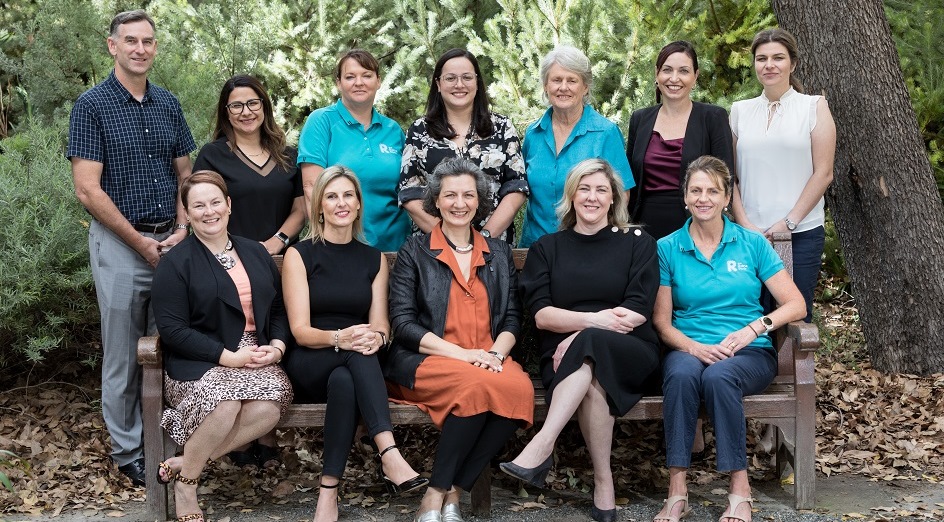Associate Professor in The University of Western Australia's School of Population and Global Health, Scientific Director of The Raine Study and Head of the Western Australian Child Development Atlas (CDA), Rebecca Glauert (UWA’s School of Population and Global Health) is a world expert in the fast-growing field of data linkage.
Data linkage, in simple terms, is a method of bringing together information, from different sources, but relating to the same individual or event. Many of our life experiences from the moment we are born until our death generate data that is collected and used for a range of purposes. For example, information is routinely collected when you go to school, visit a hospital, when you get married or divorced and when you have a baby. This data is collected by different organisations all over Australia.
Using this data, maps can be created to identify relationships between areas of development for communities and provide insight into long-term outcomes for vulnerable groups.
Despite her success in the field, Associate Professor Glauert’s journey to data linkage was far from straightforward - her psychology-based PhD thesis investigated the effects of body dissatisfaction on perception.

The Raine Study Team. Associate Professor Rebecca Glauert is seated second from right
“Once I completed my PhD I was keen to work in an area where I could make a real impact. I ended up interviewing for a position with The Raine Study at the The Kids Research Institute Australia. At this point, serendipity played a part, and whilst I was considered too “overqualified” for the position I had interviewed for, my details were passed on to another team.”
“It was like the stars aligned. I ended up working with Professor Fiona Stanley, as the Coordinator of the Developmental Pathways in WA Children Project – one of the first examples of large-scale data linkage in the world.”Associate Professor Glauert
It was through her work at The Kids Research Institute Australia, interacting with multiple government agencies and data from across the health and community sectors, that Associate Professor Glauert had the idea to geographically map the data to create a “picture” of the health and wellbeing of children and young people.
“So much work around children and young people is conducted in silos. I really felt that we needed to change the mindset, we need to look at the whole, and we can do that by bringing data, and government, together.”
As a first-of-its-kind initiative, The Ian Potter and Minderoo Foundations saw the value of the project and funded the creation of the WA Child Development Atlas to investigate factors leading to differences in health and developmental outcomes for children and young people.
The Atlas has also received additional support from The Ian Potter Foundation for further development and expansion.
Through comprehensive maps and linked data on child wellbeing, learning outcomes and health, the project provides unique insight into the areas of greatest need in WA for policymakers, service planning, and research.
“The Minderoo and The Ian Potter Foundations came on board because they could see there’s actually a lot of applicability to this. They understood our vision, and supported it, which has been amazing.”
Recognising the vast amounts of data available across Australia, Associate Professor Glauert realised insights into many seemingly unsolvable child development issues could be found within information that had already been collected. It just needed to be linked and utilised.
“If we're going to look at the health and wellbeing of children, we need to look at more than just their health. We know that there are so many things that impact on children's lives, including their environment, family, education and socioeconomic status.”Associate Professor Glauert
“If we're going to look at the health and wellbeing of children, we need to look at more than just their health. We know that there are so many things that impact on children's lives, including their environment, family, education and socioeconomic status.”
In addition to her work in data linkage, Associate Professor Glauert was recently appointed Scientific Director of The Raine Study which has recorded over 30 years' worth of expansive health and lifestyle data around a cohort first established in 1989. Supported by all five of WA’s universities, The Kids Research Institute Australia, the Women and Infants Research Foundation, The Raine Medical Research Foundation, Lotterywest and most recently the Stan Perron Charitable Foundation, the study has enabled significant health and medical discoveries, setting international standards and having a lasting impact on child health outcomes around the world.
Speaking on the importance of both The Raine Study, and the WA Child Development Atlas, Associate Professor Glauert highlighted the imperative for data to be used to improve lives.
“WA is a world leader in terms of the data we have on health and wellbeing. Not only do we have some of the longest running cohorts, but we also have one of the most advanced data linkage systems. We need to unlock the potential of that data to make real change. “
“It's about democratising the data we have available on our citizens. It's data about us, so it should be used to improve our health and wellbeing. I think we have a moral obligation to do so.”
Associate Professor Rebecca Glauert is also leading the Australian National Child Health and Development Atlas, with partners from across the country. The team are creating a centralised data asset which incorporates Commonwealth, State and non-government organization data relevant to Australian children and their health.
